Uncategorized
-
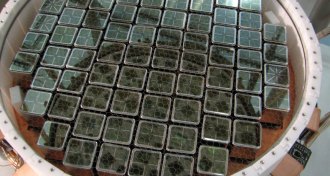 Particle Physics
Particle PhysicsDark matter still missing
The XENON100 experiment found no evidence of an annually varying dark matter signal.
-
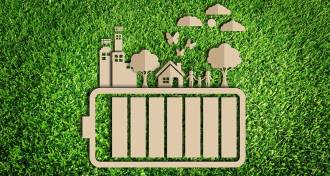 Chemistry
ChemistryBetter batteries charge forward
Next-generation batteries must hold more energy for longer periods at low cost. Several contenders may achieve some of these elusive goals.
By Susan Gaidos -
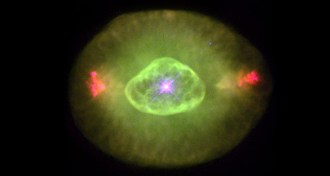 Astronomy
AstronomyEarliest galaxies got the green light
Galaxies in the early universe might have emitted lots of green light, powered by large populations of stars much hotter than most found today.
-
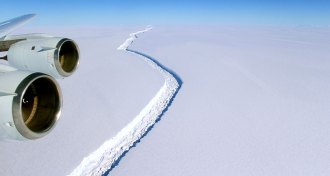 Earth
EarthAntarctic ice shelf heading toward collapse
A fast-growing crack in Antarctica’s Larsen C ice shelf could soon break off a 5,000-square-kilometer hunk of ice into the ocean.
-
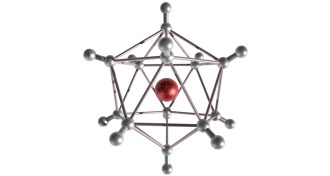 Physics
PhysicsNew form of hydrogen created
Scientists have created negatively charged clusters of hydrogen for the first time.
-
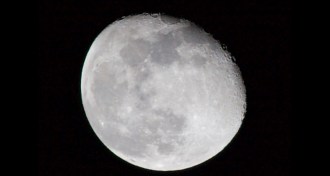 Planetary Science
Planetary ScienceMany tiny moons came together to form moon, simulations suggest
Earth’s moon formed from mini-moons generated by a series of medium to large impacts, rather than from one colossal collision, researchers propose
-
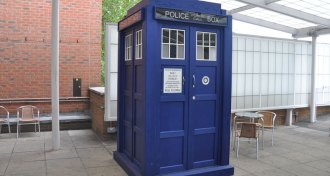 Physics
Physics‘Time Travel’ tours a fascinating fiction
James Gleick’s entertaining book Time Travel focuses more on fantasy than real science.
-
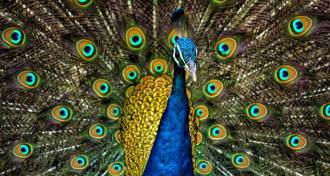 Animals
Animals‘Furry Logic’ showcases how animals exploit physics
"Furry Logic" explores how animals rely on the laws of physics in pursuit of food, sex and survival.
By Sid Perkins -
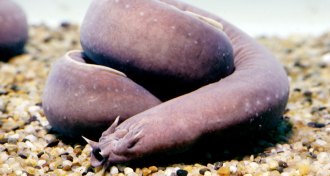 Animals
AnimalsUnusually loose skin helps hagfish survive shark attacks
Hagfish skin that easily slips and slides can be a lifesaver in crises such as shark attacks.
By Susan Milius -
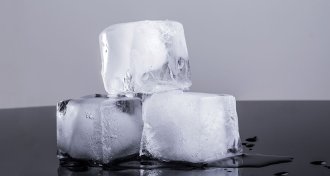 Chemistry
ChemistryDebate heats up over claims that hot water sometimes freezes faster than cold
A team of chemists has a new explanation for the Mpemba effect, while other scientists debate if it is even real.
-
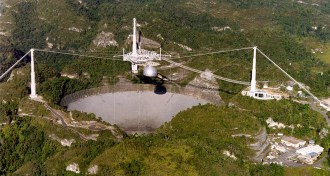 Astronomy
AstronomySome pulsars lose their steady beat
Two pulsars spend most of their time switched off, hinting at a large population of part-time pulsars hiding in the Milky Way.
-
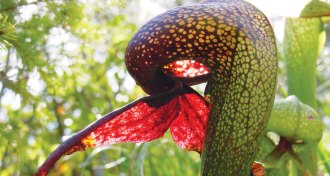 Plants
PlantsMeat-eating pitcher plants raise deathtraps to an art
The carnivorous California pitcher plant ensnares its dinner using a medley of techniques.
By Susan Milius